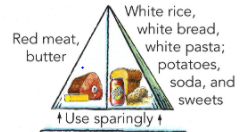How the food industry exerts influence I: food and nutrition professionals (potato industry)
Lately, I have been asked repeatedly to explain just how the food industry exerts influence to protect and promote product sales. This week’s posts address that question, starting with the usual Monday industry-funded study of the week, in this case an opinion piece sponsored by the potato industry.
Potato trade associations work hard to overcome concerns about this food’s rapidly absorbable starch content.
I received an email from the Alliance for Potato Research & Education telling me that if I don’t eat potatoes, I might become nutritionally deficient.
New publication alert: swapping out starchy vegetables may lead to unintended nutrition consequences.
A new perspective paper published in Frontiers in Nutrition underscores starchy vegetables are more than just carbs – they’re a vital vehicle for essential nutrients. Yet, as confusion around “good versus bad carbs” persists among consumers, there is a risk of starchy vegetable avoidance in favor of other carbohydrate foods perceived as equally or more nutritious – or even carbohydrate avoidance all together.
The press release cited a paper with this conclusion:
Replacing starchy vegetables with grain-based alternatives, including whole-grain foods, for one day led to a 21% decrease in potassium, a 17% decrease in vitamin B6, an 11% drop in vitamin C and a 10% reduction in fiber.
This called for a look at the actual paper.
The paper: Carbohydrate confusion and dietary patterns: unintended public health consequences of “food swapping.” Ayoob, K. Front. Nutr., 28 September 2023. Volume 10 – 2023 |
Rationale: “Nutrient-dense dietary patterns include both grain foods and starchy vegetables. These food groups are currently considered separately [by the Dietary Guidelines for Americana], and they must remain separate to ensure people are encouraged to consume complementary nutrients from each of these food groups.”
Conclusion: “Using complex carbohydrate foods, specifically starchy vegetables (e.g., potatoes) and grains, interchangeably is at best, not a useful strategy, but at worst, may increase the risk of micronutrient inadequacy and/or dietary imbalances.”
Funding: “The author(s) declare financial support was received for the research, authorship, and/or publication of this article. Funding for this perspective was provided by Potatoes USA.”
Conflict of interest: “This study received funding from Potatoes USA. The funder had the following involvement with the study: composition and data analysis of the menu modeling. KA was compensated by Potatoes USA for preparation and revision of the manuscript. The author(s) declared that they were an editorial board member of Frontiers, at the time of submission. This had no impact on the peer review process and the final decision.”
Comment: I like potatoes, think they have nutritional value (especially when baked rather than fried), and do not view them as poison. But: this paper is an opinion piece commissioned, developed, and paid for by a potato trade association. And sent to me in a press release.





